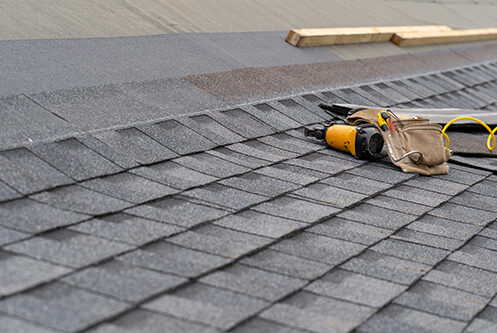Regarding energy efficiency in homes, a crucial aspect that often gets ignored is the role of roof insulation. A well-insulated roof can impact the energy consumption in your home. About 49% of your home’s energy bill is spent on heating and cooling. Poor roof insulation is a major issue that can cause a spike in your bills. Here’s how roof insulation promotes energy efficiency in your household.
Prevents Air Leaks
If your roof has gaps and cracks, air can escape or enter the house. An air leak leads to heating or cooling inefficiency in your household, making your HVAC system work harder to produce the desired temperature. Proper roof insulation prevents air leaks, ensuring that your HVAC unit effectively regulates the temperature in your house with minimal wastage.
Reduces Moisture
Moisture buildup in your house can harbor the growth of mold and mildew, leading to structural damage and health issues for your family. Insulation provides a barrier that prevents condensation on the roof surface and reduces the risk of moisture-related problems. This promotes a healthy living environment, saving you money for repairs and medical expenses.
Maintains Comfortable Indoor Temperature
A properly insulated roof can help maintain comfortable temperatures in your home. In the summer, insulation prevents the roof from conducting heat into the house’s interior. This keeps the inside cooler and reduces the need for excessive air conditioning. Insulation also prevents indoor heat from escaping through the roof in the winter. Your interior remains warm, reducing your heating requirements.
Promotes the Longevity of Your Roofing Materials
Extreme temperatures and moisture can jeopardize your roof’s structure and necessitate major repairs or replacements. Proper roof insulation helps maintain a stable temperature and reduces the impact caused by weather conditions. This boosts the durability of your roof and saves you money in the long term.
Promotes Environmental Sustainability
Roof insulation helps preserve the environment by reducing greenhouse gas emissions. Through reduced energy consumption, less fossil fuel is burned to heat or cool your home. This results in lower carbon dioxide emissions, mitigating climate change and creating a more sustainable future.
Prevents Ice Dam Formation
During winter, proper roof insulation is crucial in preventing ice dams. Ice dams form when warm air escapes your house and melts the snow on the roof. The melted ice then refreezes at the eaves. The formation of ice dams can cause water damage to the roof structure. Roof insulation prevents heated air from escaping through the roof and contributing to the formation of ice dams.
Fire Resistance
Certain roof insulation materials, like mineral wool or fiberglass, have fire-resistant properties. Installing fire-resistant insulation reduces the risk of fire spreading through the roof in case of a fire incident. This adds time for occupants to evacuate safely and minimizes the damage caused to property.
Enhances Resilience to Extreme Weather
Roof insulation can make your building better equipped to handle bad weather like storms or extreme temperatures. Insulation provides an added protection layer on the roof structure, minimizing damage that may result from the weather conditions. Ultimately, this reduces potential repair costs, leading to significant savings.
Reduces Reliance on Large HVAC systems
When your roof is adequately insulated, your need for large, powerful HVAC systems is reduced. The insulation helps prevent thermal bridging, which occurs when there is a break in the continuity of insulation. Consequently, minimal heat transfer allows for more efficient heating and cooling. Smaller HVAC systems can provide adequate heating and cooling in your house, resulting in lower installation costs and reduced energy consumption.
Promotes the Longevity of Your HVAC System
A properly insulated roof can prolong the lifespan of your HVAC system. It can minimize wear and tear, resulting in fewer system repairs and a longer useful life. This saves on maintenance costs and reduces the environmental impact of disposing of HVAC equipment.
Reduces the Heat Island Effect
Roof insulation helps reduce the heat island effect. Urban areas are hotter than their surroundings, and minimizing heat transfer through the roof reduces the amount of heat radiated back into the environment. This helps you maintain a more balanced temperature in your home, reducing your cooling demands.
Expert Roofers in Davenport, IA
Your roof insulation project can be faster and smoother if you enlist the aid of professional roofers. You can count on our experts for roof inspections, repair, and siding replacement.
Contact our team at Evenhouse Roofing for more information about our professional roofing inspection and roofing replacement in Davenport, IA and the surrounding area.
